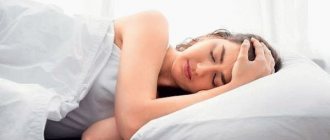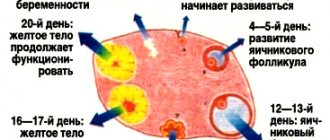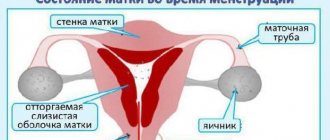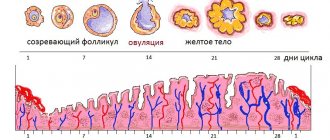Menstruation is a component of the reproductive function of the female body. Frequent urination before menstruation is a common complaint of many representatives of the fairer sex. This and other harbingers of the onset of the menstrual cycle can appear a week before menstruation. The main ones are pain in the lower abdomen, back, and diarrhea. Before addressing the issue of preventing discomfort, you need to determine the cause of its occurrence.
During menstruation, women may experience an increase in enuresis.
Causes of frequent urination
The main reasons that cause frequent urination before menstruation are irritable bowel or bladder. When there is no pain, but you often want to go to the toilet, perhaps a lot of gases have accumulated in the intestines, they put pressure on the bladder. It can also be caused by swollen vaginal muscles due to relaxation. Some women experience hormonal disruption before menstruation - the level of estrogens, androgens increases, and other hormones are not enough. We are not talking about serious pathologies, but this does not mean that the problem should be ignored.
Frequent urination requires consultation with various specialists
A constant urge to go to the toilet provokes PMS; this syndrome is accompanied by headache, discomfort in the lower abdomen, painful sensations in the chest, mood swings, drowsiness, and fatigue. The whole complex of symptoms does not necessarily have to appear, but if they do, then frequent urination may well be the cause of premenstrual syndrome.
Other factors that provoke frequent trips to the toilet, but are not related to the pathology of internal organs:
- depression;
- pregnancy - when menstruation should begin, but it is not yet due to frequent urges, pregnancy can be suspected;
- increased volume of fluid intake;
- influence of medications;
- beginning menopause;
- hypothermia;
- unbalanced diet.
Prevention
The menstrual cycle plays an important role in the life of every girl, so everything connected with it must be taken seriously. To avoid severe pain during bowel movements before and during menstruation, it is necessary to follow the rules of prevention.
- A week before your period, you need to increase your water intake, after which you can return to your usual regimen.
- 3-4 days before menstruation, you need to eat a softer diet, eat a little less raw fiber, it is better to replace it with processed coarse fibers (by carcassing, steaming or boiling).
- 2-3 days before your period, you should reduce your intake of animal protein, this will reduce gas formation and reduce the load on the intestines.
- In the second half of the menstrual cycle, it is worth reducing the consumption of sweets, because they provoke fermentation in the intestines.
- Light sports activities: dancing, aerobics, running will improve intestinal motility, so they need to be given attention, especially in the second half of the cycle.
We must not forget about regular visits to the gynecologist, because the cause of discomfort when going to the toilet can be a hormonal imbalance, the appearance of an inflammatory process in the genitals and other pathologies.
If a girl knows the cause of painful bowel movements, then she needs to fight not with its symptoms, by eating less fiber or drinking painkillers, she needs to cure the disease in order to forget about the discomfort forever.
Painful defecation during menstruation becomes a real problem for a girl, so you should not endure this condition, it is better to immediately contact a gastroenterologist and gynecologist, undergo all the necessary tests and eliminate the cause of the discomfort, because in the future the situation will only worsen.
As part of preventive measures, it is necessary not only to visit a doctor, but also to follow a diet, and also reduce the amount of alcohol and fatty products consumed.
Pain and toilet
If it is painful for a woman to go to the toilet during her period, the accompanying symptoms should be taken into account to determine the exact cause of the pain. We list the main factors due to which urination during the regulative period can be painful:
- The main cause of pain during diuresis is hypersensitivity of the bladder mucosa, which is provoked by hormonal imbalance in the female body during menstruation. Women with a low pain threshold experience such pain when urinating. Usually this discomfort goes away after adjustment;
- diseases of a urological nature (nephritis, urethritis, cystitis). The disease does not always pass acutely; if it has acquired a chronic form, it may not show any symptoms. It is enough for a woman to have cystitis at least once in her life for the disease to “lurk” and periodically go into an acute stage;
- venereal diseases. These diseases actively develop against the background of weakening of the own flora of the genitourinary organs during menstruation. The main symptom of these diseases is burning and pain when urinating;
- inflammation and neoplasms in the rectum. During regulation, against the background of hormonal imbalance, contractions of smooth muscles begin, which provokes disturbances in the outflow of venous blood, hemorrhoids worsen, and polypous nodes swell. In this case, burning and bleeding from the anus often occur, accompanied by pain;
- thrush or a violation of the normal microflora of the vagina. These diseases most often occur latently or become chronic. Hormonal fluctuations during the menstrual period provoke a negative effect of pathogenic microorganisms on the urinary system.
Only a doctor can determine the cause of pain during bowel movements or bowel movements during the period of regulation. In such a situation, you need to contact a gynecologist, infectious disease specialist or urologist.
Little by little
Pain when urinating during menstruation can be caused by exacerbation of inflammatory processes and urological diseases. If a woman has cystitis, then in addition to pain, a false urge to empty the bladder may appear, often they can occur every 12-15 minutes, while the volume of urine decreases, bloody and purulent impurities may appear in it, and there remains a feeling of an unfinished process urination.
If cystitis has entered the chronic stage, then pain when removing urine from the body will be periodic, and, most likely, it will be caused by dysbiosis and the penetration of pathogenic microflora from the vagina (fungi, streptococci, staphylococci) into the urethra.
With urolithiasis, it is not only painful to go to the restroom, but you also feel heaviness in the lower back, and when a stone passes, you feel a sharp tearing pain that even painkillers do not relieve. With urethritis, pain is felt only during emptying the bladder; as soon as urine comes out, it subsides.
Of the sexually transmitted diseases, urination with pain most often causes trichomoniasis; rarely, gonorrhea and other diseases are the cause of this symptom. Urine does not change color, but there may be additional itching in the vagina, and menstrual flow may have a darker color and a foamy structure.
If the pain persists after menstruation, and is also accompanied by dizziness, high body temperature and aching joints, most likely its cause is a pathology that requires immediate consultation with a specialist.
By and large
Frequent bowel movements during menstruation are provoked by hormonal effects on the smooth muscles of almost all pelvic organs. If the intestines are healthy, they begin to contract their walls more intensively, facilitating frequent excretion of feces. If there are problems with the digestive organs, then it may be painful to walk long distances. Painful defecation can be caused by too dense feces, which, moving through the intestines, injure and irritate it. This is often preceded by constipation, then pain accompanies the process of bowel movement, which ends with burning and itching in the anal area.
A common cause of colic before defecation, flatulence and bloating during menstrual periods is intestinal dysbiosis. This is a violation of the internal microflora of the intestine, causing diarrhea and the release of liquid feces with a pungent, disgusting odor.
Due to the flow of blood during menstruation to the lower abdomen, inflammatory and degenerative processes in the colon can cause hemorrhoidal pain. In this case, for women suffering from hemorrhoids, every trip to the restroom can be comparable to torture. If the internal nodes are injured, a false urge to defecate, a feeling of a foreign object in the anus, itching, burning and spasmodic pain may occur. Anal bleeding may appear, which, against the background of regulation, a woman may not pay attention to, deciding that it is the remnants of menstruation.
Menstruation and bowels
Many girls are accustomed to hearing that endometriosis is a disease in which the thickness of the mucous layer in the uterus increases, but there are endometrioid lesions in other organs, for example, the intestines.
Intestinal endometriosis is much more common among the fairer sex due to the special influence of female hormones on the formation of mucous tissue. If the ovaries and pituitary gland, an endocrine gland located in the brain, are disrupted, the level of steroid hormones in the blood is disrupted, affecting the uterus, intestines and other internal organs.
Due to the increase in the mucous layer in the intestine, its lumen decreases, the number of bacteria increases, and the possibility of cancer increases. Endometriosis of the colon causes severe discomfort during bowel movements, especially during menstruation, when the mucous layer increases even more under the influence of hormones.
Frequent running around “in a small way” is not so bad for many. Women are more worried about the fact that during menstruation they want to go to the toilet a lot, and also that the stool can be liquid.
Many, being sure that an infection is to blame, begin to take handfuls of anti-diarrhea pills, which is not worth doing. After all, there is a natural explanation for this too. Hormonal release has a relaxing effect not only on the walls of the uterus.
The freed intestines do not put pressure on the uterus, facilitating the sensation of its contractions. So this whim of nature is useful. It is transferred, as a rule, at the beginning of the critical days, with the most abundant discharge.
Not every problem with the intestines during menstruation is associated with frequent and easier bowel movements. For some, on the contrary, it hurts to go to the toilet during menstruation. Moreover, the sensations are so sharp that a woman sometimes cannot stop screaming when she tries, and then she is afraid to do it until the end of her critical days.
Endometriosis is one of the causes of pain
Problems with the intestines themselves. He may “go on strike” due to varicose veins, poor nutrition, or exacerbation of enterocolitis. Pain during pushing is felt in the lumbar region, where the rectum is, to the right or left of the navel (thin and thick sections of the intestine).
- Hormonal disorders. Their result will be not only problems with menstruation, but also tension in the intestinal area, such that when menstruation occurs, it hurts to go to the toilet. In particular, excess oxytocin in the blood helps to reduce the activity of the smooth muscles of the uterus. This reduces the amount of secretions, but has a similar effect on the intestinal walls. The muscles become tight, which makes it difficult to defecate.
- Retrocervical endometriosis. This gynecological disease is diagnosed when endometrial tissue is located near the cervix or on the back of it. From the third degree of the disease, the organ cells spread in the lining of the rectum. This provokes heavy periods, it is painful to go to the toilet - one of the defining signs. Menstruation during the disease begins and ends with bloody smears. It also hurts to go to the toilet after menstruation, but on menstrual periods the sensations are especially unbearable. It is also problematic to urinate, as it does not bring relief.
DETAILS: How long does it take for Flemoxin solutab to work?
Pathologies due to frequent urination
The cause of urination may be hidden in infection, reduced urinary volume, heart failure, inflammation of organs localized in the pelvic area. Also, problems before menstruation are sometimes associated with cystitis, urolithiasis, pyelonephritis, urethritis, and weakness of the muscle structures of the urinary tract. If discomfort occurs, it’s time to visit a gynecologist, since untimely treatment is fraught with complications.
Other pathologies that provoke frequent urge to go to the toilet are: diabetes, neurosis, uterine diseases, urinary tract tumors. During urine excretion, pain, burning, itching, unpleasant odor, inclusions of blood and mucus appear.
Occurrence of symptoms on the eve of menstruation
For many women, frequent urination before menstrual bleeding begins can be a consequence of PMS.
This is a complex set of disorders that affects the hormonal, psycho-emotional and cardiovascular systems of the body.
In addition to increased urination during PMS, a woman may also complain of the following symptoms:
- aggressiveness, decreased mood;
- breast engorgement;
- swelling of the arms and legs, as well as the face;
- migraine;
- urge to vomit;
- increase in blood pressure.
All these symptoms cause a woman a lot of inconvenience. They are exhausting and sometimes prevent you from doing everyday things. In this case, you need to consult a gynecologist.
Why do stomach pains occur during menstruation?
Nature has given a woman the great gift of carrying new life within her, but the fly in the ointment in this barrel of happiness was the addition of monthly bleeding and menstruation. And if bloody discharge itself does not cause much concern, then the body’s accompanying reactions sometimes significantly poison life.
The pain and spasms are often so severe that you have to take painkillers. In addition to this, a number of other unpleasant phenomena may appear: aches in the back and joints, irritability, skin rashes. About a third of women complain of diarrhea during menstruation, which completely ruins their mood.
Frequent urination associated with lifestyle
Before raising the alarm, you need to assess whether frequent urination is related to your lifestyle. If yes, it is enough to eliminate the provoking factor for the condition to stabilize. The following reasons may be responsible for discomfort:
- volume of liquid drunk. Some people have sweet cravings before their period, and sweets make them thirsty. Drinking a large amount of water, juice and tea will make the urinary system work more actively;
- nutrition. Some diets recommend eating watermelons, cucumbers, melons, drinking kefir and other liquids. The diuretic effect will not be long in coming;
- abuse of tea, soda, coffee, alcoholic drinks;
- increased levels of progesterone usually retain fluid, but before menstruation its level drops and urine is released copiously;
- taking diuretic medications, herbal decoctions with a diuretic effect;
- hypothermia;
- stress;
- commitment to spicy dishes. Seasonings irritate the urinary tract, causing frequent urge to urinate.
Treatment with tablets and folk remedies
In order to figure out how to treat frequent urination, you need to determine what provokes this phenomenon. Depending on the cause, a therapeutic course is prescribed, which may consist of medications, physiotherapy, traditional treatment methods, etc. In each individual case, individual remedies will be more or less relevant.
So, for cystitis, pyelonephritis and other inflammatory processes affecting the genitourinary system, you can resort to the following medications of the antibiotic group:
- Napicin;
- Palin;
- Nitroxoline;
- Furagin, etc.
Endocrine system disorders
When a woman wants to go to the toilet too often, she needs to be checked for diabetes. The condition is accompanied by constant thirst both before menstruation and on any day. Diabetes can be recognized by dry mouth, increased urine output, and changes in body weight (sudden weight loss or weight gain). If such signs are present, you need to check your thyroid gland and take tests as prescribed by your doctor.
Urinalysis is a mandatory diagnostic method for the disease
Your period only comes when you go to the toilet
Each representative of the fair sex has its own characteristics of menstruation. Many people have noticed that in recent days, the secretion flow is a little more abundant when you go to the toilet. This is normal at the end of monthly discharge, when almost the entire endometrium has been renewed, and its remnants are released during the efforts made by the woman to empty the urinary tract or intestines.
But it is considered an anomaly when menstruation occurs exclusively during defecation or urination, and in the normal state, bleeding from the vagina stops. The following factors can provoke this phenomenon:
- weak uterine tone. The organ contracts poorly, which is why menstrual flow is retained in its cavity. This can be caused by a lack of hormones and a sudden change in your usual lifestyle;
- incorrect placement of the uterus, its bend;
- cervical stenosis. Pathological narrowing of the cervical canal, which can be congenital and appears after surgical interventions;
- normal and ectopic pregnancy. Bloody spotting during bowel movements or bowel movements can be caused by a lack of hormones necessary to maintain pregnancy.
In a physically healthy woman, menstrual flow comes out without additional effort, and during urination and defecation, its intensity may increase slightly.
Premenstrual period
premenstrual syndrome
The most correct explanation is that in the short time before the onset of menstruation, the volume of progesterone increases. This hormone is necessarily present in the female body, but one of the nuances of its influence is its ability to retain fluid in the tissues.
The closer to the beginning of menstruation, the lower the amount of progesterone, and accordingly the swelling decreases. That is, the body gets rid of excess fluid by removing it through the kidneys.
Another reason for the complaint “I often go to the toilet before my period” may be pregnancy. Before the delay, obvious confirmations are not enough for her; frequent urge to urinate is one of them.
This is also due to increased progesterone and changes in the usual hormonal balance. Due to the active substances, the uterus swells, which increases irritation of the bladder. In addition, even at the beginning of pregnancy, a woman may like salty foods, which provokes her to drink more water than usual.
Frequent urination
When menstruation approaches, the question is also relevant: why, when you have your period, you want to go to the toilet more and more often than usual. The separation of the functional layer of the endometrium begins under the influence of a sharp drop in the concentration of sex hormones. The uterus begins to contract, trying to get rid of old tissue. Her own membranes continue to be swollen.
This tissue feature, as well as active movements of smooth muscles, provoke irritation of the bladder. This is the most harmless and harmless reason why you go to the toilet more often during your period. The largest number of visits to the “ladies’ room” occurs in the first critical days, when a larger amount of discharge comes out.
There are other reasons for frequent urination, they can be grouped as follows:
- Increased fluid intake. During menstruation, many crave sweets, which causes a frequent desire to drink water. Naturally, it is excreted in increased quantities, which makes the urge to go to the toilet more frequent during menstruation. Sometimes a woman has to get up at night to do this, which is not observed on other days;
- Stress. It is associated both with a decrease in the volume of hormones and with the fear of pain, which often accompanies menstrual periods;
- Disease of the urinary organs. During menstruation, it is very easy to purchase one of them or get an exacerbation. At this time, the woman’s immunity is reduced, which allows bacteria to spread. This is why during your period you want to go to the toilet;
- A sexually transmitted infection that occurs hidden. Due to insufficiently active immunity during critical days, pathogenic microorganisms easily migrate from the genital organs to the urinary tract. It is necessary to monitor the nature of menstrual flow. If they have a cloudy color or an unpleasant odor, it is probably an PPI.
The last two reasons do not disappear with the end of the critical days. It is possible to determine that it is the malaise that is to blame for the frequent desire to urinate by a “false alarm”, when the liquid is squeezed out a little, but there is a feeling that there is a lot of it. Another sign is pain in the abdomen that intensifies when urinating, radiating to the lower back and legs.
When should you see a doctor?
If the urge to urinate becomes more frequent, you need to listen carefully to the body so as not to miss the accompanying signs of pathological conditions. You definitely need to make an appointment with a doctor if urination is accompanied by cutting, burning, appetite disappears, the lower abdomen hurts or aches, or urinary retention or incontinence occurs. Another serious reason to visit a doctor is spotting that is not associated with menstruation. When your period begins, it is important to assess whether the duration, abundance and color of the discharge have changed, how your health has changed (perhaps weakness, dizziness and headaches, nausea, etc. have appeared).
If before there was no pain in the lower abdomen, but now it is severe, this is alarming. In addition, if there is increased nausea with vomiting, diarrhea, blood fragments are released, and painkillers are powerless. Less commonly, problems before menstruation occur in women taking oral contraceptives (hormonal pills). True, it is dangerous to use them on your own - a gynecologist can choose a drug that is suitable for the patient, assessing the general state of health, age, and other factors. Chocolate and bananas will help dull the pain before menstruation. You can reduce the frequency of urination with a decoction of viburnum and other folk remedies listed below. If it doesn't help, you need to see a doctor. It is best to first consult a doctor and get competent recommendations from him.
All about periods: 25 answers to stupid and embarrassing questions
Yes. Most often, the fertile window (the so-called period when conception is most likely) occurs on days 10–14 of the cycle. But sometimes - even with a regular cycle - it can shift unpredictably. This means there is still a risk of getting pregnant even during menstruation.
Is it normal if your stomach hurts?
No. Menstruation can be uncomfortable, but this discomfort most often does not affect the quality of life. Moreover, the pain can be reduced.
But if the cramps and heavy bleeding become really exhausting, this is an alarming sign. Perhaps it's menorrhagia - the so-called menstrual irregularities that are accompanied by excessive discharge.
If you notice that there is more blood than usual, and the cramps have become more painful, be sure to consult a gynecologist to rule out hormonal imbalance, uterine fibroids, circulatory disorders and other possible diseases.
Is it possible to exercise during menstruation?
It is possible and even necessary. According to some data, physical exercise - especially aerobic exercise (walking, running, swimming, Zumba, Pilates, yoga) and stretching - can reduce pain caused by uterine spasms.
However, we note that it is important to listen to the needs of the body. If you feel weakness and pain that discourage any desire to work hard, it is better to refuse training, postpone strenuous work, and instead go for a consultation with a gynecologist.
Is it possible to swim during menstruation in open reservoirs and pools? What if something gets “there”?
If you use tampons, the risks are minimal. Swim for your health.
This recommendation even applies to cases where sharks are found in your favorite body of water. Lifehacker has already written: there is not a single confirmed case of a predator attacking a swimmer during her period.
In general, sharks for some reason prefer to hunt men.
5. Is it true that menstruation stops in water?
No. And when you swim, and when you relax in the bath, the uterus still contracts, and menstruation continues.
The only nuance is that the water blocks the blood flow. Because of this, it seems as if less blood is released during water procedures. But as soon as you go to the (conditionally) shore, all the blood that has accumulated during the voyage will rush to the exit and menstruation will continue as usual.
How long can you wear one tampon?
Doctors recommend changing your tampon every 4–8 hours.
But there is an extremely rare, but very dangerous complication associated with prolonged use of hygiene products. This is toxic shock. It is caused by bacteria that normally live on the skin.
Sometimes they penetrate the fibers of the tampon and begin to rapidly multiply there, simultaneously releasing a huge amount of toxins.
The consequence of this is severe intoxication, sometimes even fatal.
If you don’t remember exactly when you changed your tampon, but you start to feel like in the first days of the flu (fever, chills, weakness, headache, nausea), call an ambulance immediately.
Can a tampon get lost inside? For example, fall into the uterus?
Excluded. The vagina is not as deep as it might seem: its length, even in an excited state, does not exceed 17–18 cm. When something gets into it, it somehow rests on an extremely narrow area - the cervix.
o-krohe.ru
The cervix is a protective barrier that does not allow anything unnecessary to pass through: neither foreign bacteria nor any mechanical particles. Including, of course, a tampon. He simply has nowhere to go.
8. How much blood should be released during menstruation?
On average, 30-70 ml (2-5 tablespoons) during the entire period of menstruation - no matter whether it lasts three days or a week.
I'm losing more blood! It is very dangerous?
It depends what “more” means. If this word means a volume of a little more than 4 tablespoons, then in general this is normal. The fact is that menstrual fluid is not only blood. It also includes particles of the uterine mucosa.
The concept of “normal volume of menstrual fluid” varies quite widely. In addition, each menstruation is individual: sometimes there is less discharge, sometimes more. So unless you're experiencing painful cramps, nausea, extreme weakness, or other unusual symptoms, you're probably fine.
Truly dangerous blood loss is rare. But be prepared to see a gynecologist as soon as possible if:
- Blood soaks one or more pads (tampons) per hour for several hours.
- To prevent leakage, you have to use double protection: both a tampon and a pad at the same time.
- Bleeding lasts more than 7 days.
- Your period is so painful that it forces you to change your plans.
- Menstruation is accompanied by severe weakness, fatigue, dizziness and other signs of blood loss.
Is it normal for clots to pass?
Yes. Clots are particles of the uterine mucosa that are shed during menstruation. If their diameter is no more than 2–2.5 cm, there is no need to worry.
If the clots are larger, be sure to consult a gynecologist. Such discharge often occurs with cysts, polyps, and uterine fibroids. It is necessary to establish their cause and undergo treatment based on the results.
If a test shows pregnancy and then bleeding occurs, is it a miscarriage?
Is not a fact. There are several possible options here.
- The two stripes were a mistake. This happens if, for example, you violated the instructions and allowed the test to sit in the urine longer than recommended. Or the test was expired.
- Your level of human chorionic gonadotropin (called hCG or hCG) is elevated. As a rule, the level of this hormone increases during pregnancy, and it is this that is recorded by standard tests, showing a second stripe. However, in some cases, hCG may increase for reasons unrelated to pregnancy. For example, due to taking fertility drugs. Or because of health problems: hCG often increases with ovarian cysts and tumors, some kidney diseases, urinary tract infections, and so on.
- You actually had an early miscarriage. Most often, this happens when the fertilized egg has chromosomal abnormalities and the uterus rejects the fertilized egg shortly after implantation. According to statistics from the American Pregnancy Association, 50–75% of all miscarriages are of this early type.
Be that as it may, if the test shows two lines, and menstruation begins soon, you need to see a gynecologist. Only a doctor can determine why this happened and rule out possible dangerous violations.
If your period doesn't come, is it pregnancy?
In most cases, if you are healthy and sexually active, yes. Menstruation that does not arrive on time is a clear reason to buy a test and contact a gynecologist.
However, sometimes missing a period has nothing to do with pregnancy. The cause of the delay can be various factors: from hormonal imbalances to jet lag, lack of nutrients or stress. Still, it’s worth consulting with a gynecologist.
And if you get your period, is it definitely not pregnancy?
Almost certainly. If you start to have the usual amount of discharge, it means you are not pregnant.
It is important to note that about 25–30% of women experience spotting in early pregnancy. Their causes can be very different: from completely normal implantation bleeding to a developing infection.
However, it is almost impossible to confuse them with real menstruation: they are too scanty and short-lived.
What should periods smell like?
Normally, no way. More precisely, you should not feel any special aroma until you start sniffing specifically. And when you start, you will only feel the metallic smell of blood with the slightest admixture of vaginal amber.
A strong, pungent, noticeable odor often indicates an infection. Therefore, do not try to simply disguise it - be sure to consult a gynecologist!
And you should definitely go to the doctor if, in addition to an unusually strong odor, you notice:
- Yellow or green discharge.
- Menstruation is more painful than usual.
- Pain and discomfort in the stomach and/or pelvis.
- Temperature increase.
Such symptoms clearly indicate that inflammation is developing somewhere inside.
15. Is it normal that cough and shortness of breath occur during menstruation?
Rather, this is one of the variants of the norm. Menstruation is accompanied by a decrease in the level of the female hormone estrogen, and a deficiency affects the functioning of the lungs. As a result, a cough and slight shortness of breath may appear, which disappear along with menstruation.
Can you tell when your period is coming by your voice?
A 2011 study found that women experience significant changes in voice characteristics during menstruation. In general terms: before ovulation, female “vocals” become higher and more melodic, the speed of speech increases, and by menstruation the timbre and tempo decrease. Some young ladies have it so much that it becomes obvious even to uninitiated ears.
17. Is it true that with PMS women become nervous and unpredictable?
Rather, more impulsive. For example, it has been found that just before menstruation, women spend money more actively and make thoughtless purchases. This is due to the fact that young ladies experience physical discomfort and are looking for ways to feel better. Insatiable impulse shopping is one of them.
Do people become stupid during menstruation?
Hormonal fluctuations may indeed impair memory and concentration in at least some women.
Physical discomfort also plays a role: when experiencing unpleasant sensations in the uterus, women are distracted, get tired faster, and become less focused.
But talking about a decrease in mental abilities in this case is the same as suggesting that people become stupid when they have a cold.
Is it possible to dye your hair during your period?
There is an idea that hormonal fluctuations during menstruation somehow change the properties of the hair, which is why the dye does not apply well. But professional hairdressers do not confirm this. The coloring result does not depend on the day of the cycle, so apply your beauty whenever you want.
What about eyelash extensions?
Can. Menstruation does not change the properties of the hair, so the procedure of gluing “extensions” to the eyelashes will go exactly the same as on any other day of the cycle.
They say you shouldn’t go to the dentist or for hair removal during your period, because it will hurt more. This is true?
Yes, but only partly. Indeed, the pain threshold varies depending on the phase of the cycle. A week before menstruation it decreases. This means that dental treatment or, say, sugaring will seem more unpleasant to you than usual.
But after the end of menstruation and until ovulation, the pain threshold, on the contrary, increases. So it is worth prescribing any painful procedures for these periods.
Is it possible to take tests during menstruation?
Much depends on what kind of analysis we are talking about.
For example, hemoglobin levels naturally decrease with blood loss, so measuring it during menstruation would be a mistake. Cholesterol levels, on the contrary, are higher during menstruation than before and after them. If you take painkillers, these may also affect your test results.
Therefore, if possible, postpone blood and urine tests until your period has ended. If the analysis is urgent, be sure to consult with your doctor so that he can interpret the results, adjusting for the phase of your cycle.
Is it possible to use vaginal suppositories during menstruation?
You can bet it. But we must take into account that bleeding can wash away the drug even before it takes effect. This means that the effectiveness of treatment will decrease. This situation is usually specified in the instructions for specific suppositories.
In most cases, candles are prescribed in a course that should not be interrupted. Therefore, there are two options to solve the problem:
- Start the course in such a way as to complete it before the onset of menstruation. For example, if your suppositories are designed for 10 days of use, you should start the course no later than 11–13 days before the planned start of your period.
- Use candles that are wash-resistant. Such suppositories are quite rare and are more expensive than their flushable “colleagues”. Ask your gynecologist about which ones to prefer.
Is it possible to get your period on time?
In general, yes. The most effective way is to start taking birth control pills in the cycle preceding the desired date. In this case, menstruation will begin a day or two after you stop taking the pills.
Other ways to induce your period include a variety of physical methods. For example, you can take a hot bath or have sex. However, the effectiveness of such methods is much lower. And in any case, they should absolutely not be used if you suspect you are pregnant.
What to drink or eat to delay your period?
Neither food nor drink affects the onset of menstruation. If you want to postpone your period, only hormonal medications, in particular birth control pills, will help. Menstruation will not occur until you stop taking it.
Source: https://Lifehacker.ru/mesyachnye/
Which doctor treats you?
urologist gynecologist
These specialists will collect anamnesis and assess the general condition of the patient. To clarify the diagnosis and understand what studies may be needed, doctors usually ask the following questions at the appointment:
- How often do you urinate?
- Do you feel severe pain? Have you noticed a change in the color of the liquid?
- Do you often experience stress in your life?
- Are you taking strong medications?
- Do you have pathologies of the genitourinary system?
Diarrhea and pregnancy
The menstrual cycle is primarily associated with the reproductive function of a woman; its task is to form an egg ready for fertilization and remove it from the body if this does not happen. Therefore, a delay in menstruation has always been the first sign of pregnancy. If, a couple of days before the expected bleeding, intestinal dysfunction in the form of loose stools is observed, it would be a good idea to buy a couple of pregnancy tests at the pharmacy and take them in the morning one day apart. The interval is necessary for a more accurate result, because in the early stages, the hormone hCG, which indicates an interesting position, is present in the urine very weakly, but grows noticeably over the course of a day. It is possible that the first test will be negative and the subsequent test will be positive.
In addition to delay and diarrhea, the following factors indicate pregnancy:
- Frequent urination before menstruation, which in rare cases can occur in pregnant women. The need to frequently go to the toilet for small periods will continue in this case even after menstruation;
- A slight increase in body temperature is observed during the period of attachment of the fertilized egg to the wall of the uterus;
- Vomiting appears at very early stages due to the onset of hormonal changes.
Two lines on the test will explain all the ailments at once. Regardless of whether pregnancy is desired or not, you should not take medications for diarrhea. Now only the doctor must authorize or prohibit the patient from taking medications.
Menstruation in women
Women have menstruation (periods) every month. They begin during puberty, are absent during pregnancy and for a certain period of time after childbirth. Bloody discharge stops with the onset of menopause. The duration of the menstrual cycle varies: from 23 to 35 days. The norm is usually 28 days.
The processes occurring in women’s bodies are divided into phases:
| Phase | Processes in the body |
| Menstrual | The period of uterine bleeding lasting 3-7 days. The uterus, contracting vigorously, rejects the enlarged endometrium (inner lining), to which the egg is attached after fertilization. |
| Follicular | Starts with the first phase. Duration – 14 days. A new follicle is formed in the ovaries, where the egg will mature. The endometrium begins to grow. |
| Ovulatory | The duration of the phase is 3-4 days. Under the influence of hormones, the mature follicle ruptures, and the egg is released, ready to merge with the sperm. The process is called ovulation. Some women feel a slight pain in the lower abdomen, in the area of the ovary where the rupture occurred. |
| Luteal | The length of the phase is from 11 to 16 days. The hormones estrogen and progesterone are produced, which prepare the body for future pregnancy. The phase is characterized by the manifestation of premenstrual syndrome (PMS) - a set of indicators of altered hormonal levels (painful sensations in the lower abdomen, changes in psycho-emotional state, breast swelling). |
Frequent urination is also often one of the signs of PMS. In this case, the drinking regime may be completely sparse.
Indications for contacting a medical institution
A woman should definitely discuss frequent urination with her gynecologist during a routine visit. However, sometimes it is better not to delay a visit to the doctor. You need to contact a medical facility as soon as possible if:
- urination is accompanied by discomfort and does not bring relief;
- menstruation has become longer or, on the contrary, its duration has decreased, clots are present in the discharge;
- before menstruation there is pain in the lower abdomen or lower back;
- nausea occurred;
- there is a violation of the stool;
- there is an admixture of blood in the urine;
- rashes appeared on the skin of the genital organs;
- the smell of urine has changed;
- body temperature began to increase.
If the use of painkillers does not help, you need to urgently call an ambulance.
Foreign bodies in the rectum
Rectal disease is perhaps the most common among both women and men. It should be noted that this disease is inherent in any age category.
The formation of such a disease cannot even be controlled. What is rectal disease and how to recognize it among all similar diseases?
There are quite a lot of symptoms and everyone has encountered one of them:
- Abdominal pain. This has happened to any person. Pain of this nature spreads primarily to the anal canal. The pain can be either sharp or aching. A significant reduction in pain occurs during the release of gases.
- Abnormal stool. Constipation contributes, first of all, to intoxication of the body, which, of course, has a negative impact on the health of any person.
- Rumbling. Many have encountered such incomprehensible symptoms as rumbling in the stomach and 50% do not even attach any importance to it. It is these sounds that indicate that gas formation is increasing.
- Bursting pain in the intestinal area. Pain, as a rule, varies in intensity. However, based on the occurrence of pain in a certain period of time, diseases are determined.
As you can see, the symptoms are quite banal and familiar to everyone. Any of the symptoms may indicate the presence of a serious illness. If any violations are detected, you must carefully monitor your body and, if necessary, consult a competent doctor.
Foreign body in the rectum - the presence of a foreign object in the area of the distal part of the large intestine.
For diagnosis, a digital examination method is used to assess the presence of a foreign body in the rectum.
This disease is often characteristic of persons suffering from alcoholism. The risk group includes people with non-standard views on sexuality.
As such, a foreign body concentrated in the rectum does not pose a threat. It is necessary to efficiently remove the foreign body from the rectum.
If a foreign body remains in the rectum for a long time, this may lead to the development of an infectious disease.
How to help yourself
Diarrhea can appear for many reasons, but if it is caused not by disease, but by physiology, following simple recommendations will make life much easier:
- On the eve of your period, you should not try exotic dishes and drinks. It is better to exclude fried, fermented milk, fresh vegetables and fruits from the diet for a while: such food causes increased gas formation and relaxes the intestines;
- Add foods that have a strengthening effect to the menu. Rice and oatmeal, wholemeal bread, croutons, cottage cheese - all this will help to cope with diarrhea naturally. It is better to cook porridge in water, without milk. It would be good to replace regular tea with special decoctions of medicinal herbs;
- Eat often, but little by little. Let the intestines rest a little, it’s not easy for it right now;
- All food consumed must be fresh and of high quality. Products of animal origin must be processed thermally, vegetables and fruits must be washed;
- If diarrhea has already begun, you need to drink plenty of fluids to restore the water-salt balance: water, teas, jelly. It is not recommended to consume juices and compotes;
If the above measures have no effect, you need to resort to mild medications. A couple of tablets of No-shpa or Imodium will help relieve unpleasant symptoms. You can also turn to an old proven remedy - activated carbon. They drink it at the rate of 1 tablet per 10 kg of person’s weight.
Often, diarrhea or constipation before menstruation is closely related to PMS and is caused by a nervous disorder. Then the salvation will be tinctures of motherwort or valerian, taken in the evening, and sound, healthy sleep. You don’t need to drink a lot, otherwise you risk oversleeping in the morning before work. If possible, you should avoid stress these days, because as you know, all diseases are caused by nerves.
Why would diarrhea appear before menstruation? Its presence complicates life, preventing you from working normally, doing household chores, or going out for a long time. It's even worse if the diarrhea is caused by an illness. On the eve of critical days, it is important to closely monitor any health changes that occur.
Treatment
A woman should visit a gynecologist at the first signs of menopause. The specialist will conduct an examination, prescribe a hormonal test, and conduct a preliminary consultation. In the future, it is necessary to visit the gynecologist’s office for any disturbing symptoms. As for the treatment of urinary pathologies during menopause, the doctor prescribes it based on general symptoms and the presence of chronic diseases.
Treatment with folk remedies
Medicinal plants, vegetable juices, and berries are used for therapy. You can buy a special herbal mixture at the pharmacy or prepare the medicine yourself. Folk remedies are prepared in the form of tinctures and decoctions. Take 3 times a day.
Decoctions for incontinence during menopause
The raw materials are poured with boiled water, covered with a lid or wrapped in a towel, and left for 2 hours. Take 1/3 cup at a time. The following raw materials are used:
- sage;
- Dill seeds;
- blackberries, lingonberries, blueberries;
- rosehip berries;
- yarrow.
A very effective medicinal collection of bearberry, birch leaves, licorice root, and corn silk. Take 1 tbsp of each of them. spoon, add 300 ml of water, simmer over low heat for 15 minutes. Leave for about 5 hours. Take ¼ cup. You need to drink the entire prepared portion per day.
What else to treat? Fresh carrot juice, which they drink in the morning and evening. To normalize hormonal levels, drink tea from raspberry leaves, tomato juice, grape juice, and eat greens.
Treatment with drugs
Since problems with urination occur against the background of hormonal changes during menopause, they are treated with special medications to restore the balance of hormones. Basically, 2 types of medicines are used: those containing hormones for replacement therapy, and homeopathic remedies. In the first case, treatment is selected by a specialist, taking into account existing chronic diseases, symptoms of menopause, and genetic predisposition. Such drugs include Klimonorm, Femoston, Angelique, Klimara, Divina.
In most cases, natural preparations containing phytoestrogens are prescribed, which have no side effects and are suitable for almost all women. Remens, Klimaksan, Klimadinon, Klimakt-Hel.
Infectious pathologies of the bladder are treated with antibiotics, antibacterial, and anti-inflammatory drugs.
Ways to eliminate the symptom
The ability to eliminate an unpleasant irritating symptom (reducing the number of trips to the toilet) directly depends on the reasons that caused it. Therefore, everything that accompanies the violation is important. There are no trifles in matters of health.
The doctor selects methods of elimination and treatment methods individually:
- Changing habits: reducing the number of drinks you drink, giving up (if possible) diuretics, adjusting your diet, preventing hypothermia, eliminating stressful situations.
- If any diseases are detected, appropriate treatment is prescribed.
- Natural physiological causes go away on their own over time.
Every woman, if she is attentive to her body, is able to determine whether everything is normal or whether pathology is developing. Don't ignore warning signs. It is impossible to remain inactive, hoping that everything will pass over time. Lack of treatment in some cases can lead to dangerous consequences.
Painful urination in men
If a man experiences discomfort when urinating, this is a signal of serious problems:
- urethritis or prostatitis. Very common diseases among representatives of the stronger sex, resulting from infection with reduced immunity or hypothermia, or lack of personal hygiene. Bad habits and stress also contribute to the development of inflammation;
- infections transmitted through sexual contact. At risk are those men who do not use condoms and often change sexual partners, as well as representatives of sexual minorities:
- various tumors. They can be benign or malignant. Neoplasms block the lumen of the urethra or ureter. At risk are men who smoke a lot or work in hazardous industries;
- urolithiasis disease. When the stones move, the man experiences pain when urine comes out.
Ignoring symptoms can lead to the most tragic consequences, such as infertility, even death.
Diseases of the urinary system
An increased outflow of urine may indicate pyelonephritis, cystitis and urethritis. But this is far from the only symptom accompanying such diseases.
During the inflammatory process, the color and composition of urine will change (visible even without laboratory analysis), pain will appear in the lumbar and groin areas, and body temperature may increase. There is often a feeling that the bladder is not completely empty.
If such symptoms occur, especially in combination with fever, you should immediately consult a doctor and begin treatment. Advanced cases of inflammatory diseases threaten severe complications and the development of renal failure.
Pain due to rectal prolapse
If hemorrhoids are not treated properly, they can lead to rectal prolapse. This condition can also occur with any other inflammatory processes in the rectal area. In this case, pain is noted, which becomes stronger when erosions appear. Sometimes prolapse occurs during physical activity, for example, after sexual intercourse, and then a person feels pain in the anus after defecation.
The disease is characterized by different symptoms at three stages:
- When you have a bowel movement, the mucous membrane falls out, it is possible to straighten it yourself;
- during physical work the rectum falls out, but it is not possible to straighten it on your own;
- the rectum prolapses while standing, regardless of the load.
This disease is most often a symptom of another pathology of the rectal area. If you experience initial symptoms, you should immediately see a doctor.
Internal genitalia of a woman
The internal genital organs consist of:
- The vagina is very elastic and long, about 12 centimeters, connected to the cervix. Its walls consist of three layers of fabric.
- The uterus, which is about the size of a fist and is shaped like a pear. It consists of three sections: the neck, body and isthmus. A special canal passes through the cervix, the cervical canal, which contains mucus that protects the organ from bacteria.
- The uterine appendages are the fallopian tubes, through which the egg enters the uterine cavity.
- The ovaries are a paired organ. This is where eggs grow and develop, and female sex hormones are produced here. Namely estrogen and progesterone.
Physiological provocateurs
Sometimes frequent urination before your period is due can be the result of natural physiological changes in a woman's body.
Climax
Women whose reproductive function begins to fade (menopause) may experience frequent urination. During this period, the level of estrogen in the blood drops sharply.
In this case, a woman may additionally experience the following symptoms:
- urinary incontinence;
- feeling of incomplete emptying of the bladder;
- disruptions in the menstrual cycle;
- pathological dryness and itching in the genital tract;
- sensation of heat (time appears);
- mood swings;
- migraine.
It is worth noting that in this case, after the end of menstruation, urination returns to normal.
Pregnancy
Sometimes a woman is expecting her next menstruation and does not know about her pregnancy. In this case, frequent urination may be one of the first symptoms of an “interesting situation.”
In such cases, a woman may also notice:
- delayed menstruation;
- increased sense of smell and changes in taste preferences;
- enlargement of the mammary glands;
- weakness, drowsiness, fatigue;
- urge to vomit;
- flatulence;
- slight bleeding from the genital tract.
To make sure you are pregnant, just perform a test at home.










